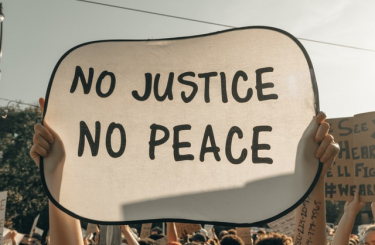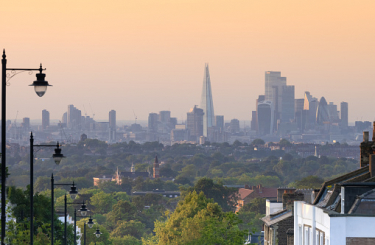Related



A blog from London Funders that asks: how do we build our civil society so that it is truly responsive to, reflective of, and a champion for people and communities in London?
“Whatever you might be thinking about the long-term impacts of the coronavirus epidemic, you’re probably not thinking big enough.”
“But, in the same way that Covid-19 is spreading at an exponential rate, we also need to think exponentially about its long-term impact on our culture and society. A year or two from now, the virus itself will likely have become a manageable part of our lives—effective treatments will have emerged; a vaccine will be available. But the impact of coronavirus on our global civilization will only just be unfolding. The massive disruptions we’re already seeing in our lives are just the first heralds of a historic transformation in political and societal norms”. Jeremy Lent
No-one knows what the long term outcomes of this pandemic will be but, as we are already experiencing, a crisis of this magnitude will create deep and unexpected shifts. Whatever the world looks like as we move from the immediate crisis, to the transitional period to the emergence of a changed landscape we are beginning to see that many of the previous systems, structures, norms and jobs could disappear and not return.
There is no doubt that this will have significant impacts on the most vulnerable: income inequality exacerbated; increasing physical and mental health issues and a potential rise in food prices caused by supply chain disruption. At the same time different approaches and tools such as Universal Basic Income are gathering mainstream support. New ways of organising our cities transport systems are being trialled all over the world. The possibilities of progressive forms of social support are being explored and amplified.
The deeply shocking and visible inequality of the crisis – the care workers, security guards, supermarket staff and nurses continuing to work on the frontline whilst many on higher pay work from home; the evidence that those living in the poorest parts of England and Wales are dying at twice the rate of those in the richest areas – creates a particular moral context that may result in a shift in our collective mindset centring on justice and equality as we move forwards.
Nowhere has this been clearer than in the seismic response to the murder of George Floyd in America and the power of Black Lives Matter. The disproportionately high rate of black people in the UK dying of Covid-19 starkly exposes the systemic racism and white hegemony of British society. This in turn has created the glimmerings of hope that by working collectively we could create a turning point for racial justice in the UK with many organisations explicitly acknowledging their failings on tackling racism and their need to do much more and much better. But time will tell whether these are performative acts or real, systemic shifts in thought and practice.
What came before
“In civil society a thousand flowers really are blooming. In every village, town, city, neighbourhood, community and sector new organisations are popping up and older ones are transforming themselves. If people are helping the people, this is bound to be where change starts first and fastest. Go on any local bulletin board or test out some hash tags, and the world of deep and rich innovation and collaboration will be revealed.”
45 Degree Change, Compass, February 2019
In August 2019 a blog highlighting racist training materials sparked the #CharitySoWhite movement, highlighting widespread institutional racism in civil society. In April of the same year London Funders published ‘To Begin at the Beginning’ underlining the systemic issues underpinning serious youth violence and advocating for a collaborative and long-term response from funders. In February the Losing Control network convened its biggest gathering of charities, policy makers, funders and individuals to explore inclusive ways of working, advocating for lived experience to be at the heart of decision making and promoting genuine diversity. And all of these approaches were built upon years of work by progressive change makers campaigning for new and collective ways of doing things with equity and accountability at their heart.
This is to say that many of the things that this crisis is bringing to the surface we knew about already. We knew that we were an increasingly unequal society and that groups within it were routinely and systemically penalised for, amongst other things, their race, their gender, their disability and/or their sexual orientation. We knew that power was held within increasingly homogenised circles and that decisions about peoples’ lives were made by those often furthest away from the challenges. We knew that institutions were hierarchical and siloed and that collective decision making and collaborative practice was culturally alien to many. We also knew that many within civil society were fighting back; finding new ways of working and thinking to create alternative models.
What’s happening now
“Pressure is on to assume a rapid emergency response, which has the virtue of addressing the basic needs of those most directly vulnerable to the impacts of the coronavirus….Another, more farsighted school of thought would advocate for taking on a renewal focus, with a keen eye towards the future…It is not an either/or decision, this situation requires professionals to pivot between both emergency response and future renewal strategies.” Cormac Russell
What is clear right now is that many people and organisations are still operating in survival mode working out how to best get through what remains an emergency. But whilst desperately trying to make sense of an ever changing present there is also a transitioning into something else, a stage Donna Hall describes as “the liminal space: the critically important space between one form of existence and the next.”
London Funders have been bringing organisations and people from across the sector together to learn in real time since the beginning of this crisis (as well as long before). Our ‘immediate’ response was the funder statement from which Waves 1 & 2 of the London Community Response have emerged with Wave 3 starting soon. At the same time we recognise that this will not be a seamless progression - one, two, three - more a buffeting between future waves of the virus, pushing us back and forth.
But beyond the push and pull of these waves is a shoreline that we must keep in sight. How do we task ourselves to prepare for reaching that shore and getting safe purchase; maintaining vigilance whilst staying open to the unknown?
Reimagine
“Who gets to imagine the future defines what the future looks like.” Lyn Gardner
No-one knows the extent of the challenges being experienced right now or those that will reveal themselves as this new territory emerges. The potential for progressive change is “far from guaranteed” and end gaming with quick solutions is a high risk venture. As Grant Oliphant describes in the Chronicle of Philanthropy, “our job is to look deeper and further.” We need to give time to the reimagining.
A key strength of London Funders is our role as a connector and convenor across many sectors and actors in the capital. But looking deeper and further requires us to design a different kind of conversation than the ones we have been involved in before. We want to utilise our position to create an environment where we can start taking the steps needed to reimagine our collective purpose and place.
Success will be dependent “on our collective capacity to deal with facts, share values, and identify common solutions”. But there is a danger that that ‘collective’ falls in to the same siloed, cognitively homogenous groupings that are part of the problem. The same disparity between those on the frontline and those at home repeats again when examining who has the luxury of time to think and reflect and whose voices are missing from the conversations around ‘the new normal’.
So with all this at the forefront of our minds want to hear from you: how should we work together to explore the shoreline, the ‘what if’, thinking with us not for us? Please do drop us a line with your thoughts.


